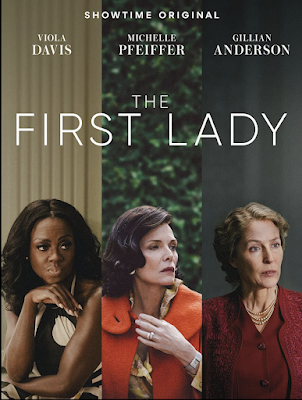Anita Pointer (12/31)
Pointer was the last surviving member of the original Pointer Sisters trio that had a string of hits starting in 1973 with the Allen Toussaint funk anthem "Yes We Can Can" featuring Anita's lead vocal. With her brother Fritz she penned the 2020 book Fairytale: The Pointer Sisters' Family Story about the sisters' roots in the Oakland, CA Black Power movement and their rise to fame. Of their early days of success, she wrote, "We were having fun, but not what I'd call getting wild. We drank, smoked cigarettes, and occasionally had a little pot." But saddled with debt and a grueling touring schedule, both younger sisters June and Ruth succumbed to hard drug addiction (cocaine and crack), and Anita also lost her only child Jada to cancer in 2003. The Sisters, who started their career singing backup vocals for acts like Grace Slick and Betty Davis, had a number two hit in Belgium in 2005, covering the Eurythmics/Aretha Franklin song "Sisters Are Doin' It for Themselves" with Belgian singer Natalia. In December 2017, Billboard ranked The Pointer Sisters as the 93rd most successful Hot 100 Artist of all-time and as the 32nd most successful Hot 100 Women Artist of all-time.
The lyrics Anita sang should inspire us all as we enter 2023:
Barbara Walters (12/30)
A chapter in the new book, The Activist's Media Handbook by David Fenton is titled, "How Barbara Walters Saved Abbie [Hoffman] From a Long Prison Term" and describes how in 1980, Fenton was able to arrange an exclusive interview with Walters and the infamous Yippie! activist Hoffman, then underground after being arrested for selling three pounds of cocaine to undercover agents. Fenton convinced Walters to get into a plane without knowing where she was going, lest the FBI would be alerted, and describes how she interviewed Hoffman "like a Jewish mother meets her long-lost Jewish son" for a full hour, which aired on ABC's 20/20 (pictured.) "As a result, a week later when [Hoffman] turned himself into the Manhattan district attorney, he served only fifty-four days in jail," writes Fenton. That's the kind of clout Walters had. Yes, she blazed many trials, broke many barriers, and started The View to give women a voice, but this—and the time she got Bing Crosby to say that he was for marijuana legalization, and asked President Obama about the topic after Colorado and Washington legalized in 2012—are my favorite stories about her.
Canadian folk music legend Tyson was, according to Suze Rotolo, the one who turned Bob Dylan onto marijuana. In her memoir A Freewheelin' Time, Rotolo writes, "I swear it was Ian Tyson who offered up the first taste of marijuana when Bob brought him to the flat one afternoon. Ian had a friend back home who had introduced him to their stuff you could smoke that would get you high. Bob didn't think I should try it until he had tested it, but later on I did." Writing about sitting around with Tyson and his partner Sylvia listening to records, Rotolo wrote, "We reveled in the joy of discovering something we had never heard before. And this wasn't just for music; it was about books and movies, too. We were a young and curious lot." Tyson wrote "Four Strong Winds" the day after he heard Dylan introduce his new song "Blowin' In the Wind" in 1962.
Vivienne Westwood (12/29)
“I don’t think punk would have happened without Vivienne," said Tokin' Woman Chrissie
Hynde, who before forming the Pretenders, was an
assistant at Westwood's London shop. “I was about 36 when punk happened and I was upset about what was going on in the world,” the influential fashion designer and activist told Harper’s Bazaar in 2013.
“It was the hippies who taught my generation about politics, and that’s
what I cared about — the world being so corrupt and mismanaged, people
suffering, wars, all these terrible things.” Westwood wardrobed The Sex Pistols and Boy George, and created Oscar gowns for Kate Winslet in 2006 and Zendaya in 2015, for a look (pictured right) that prompted Giuliana Rancic to comment, “She looks like she smells like patchouli oil and weed.”
The grandson of Bob Marley was a recording artist and DJ who was aiming "to do something new with my roots," as he once told Rolling Stone. He began performing onstage at age 4 with Ziggy Marley and the Melody Makers —
his father Stephen, his uncle Ziggy, and his aunts Cedella and Sharon — during
that group’s concert finales. He moved to Florida at age 11, where he
studied studio engineering and observed his father and uncle Damian
Marley working in Stephen’s Lion’s Den studio before starting to make his own music. He died at the age of 31, reportedly of an asthma attack.
Franco Harris (12/20)
When he made the Immaculate Reception, his Italian mother was reportedly praying the Rosary and listening to Ave Maria. Harris died three days before the 50th anniversary of his most famous play, to commemorate which there is a statue in the Pittsburgh airport (pictured). Harris told the Pittsburgh Post-Gazette in 2017, "I feel in any state that has approved medical marijuana (as 28 states hosting 20 of the NFL’s 32 teams have), the league should remove medical marijuana from being a banned substance....I will tell you this, if it ever comes to a point where I do need pain management, I’d feel very lucky and happy now that we have medicinal marijuana in Pennsylvania.”










